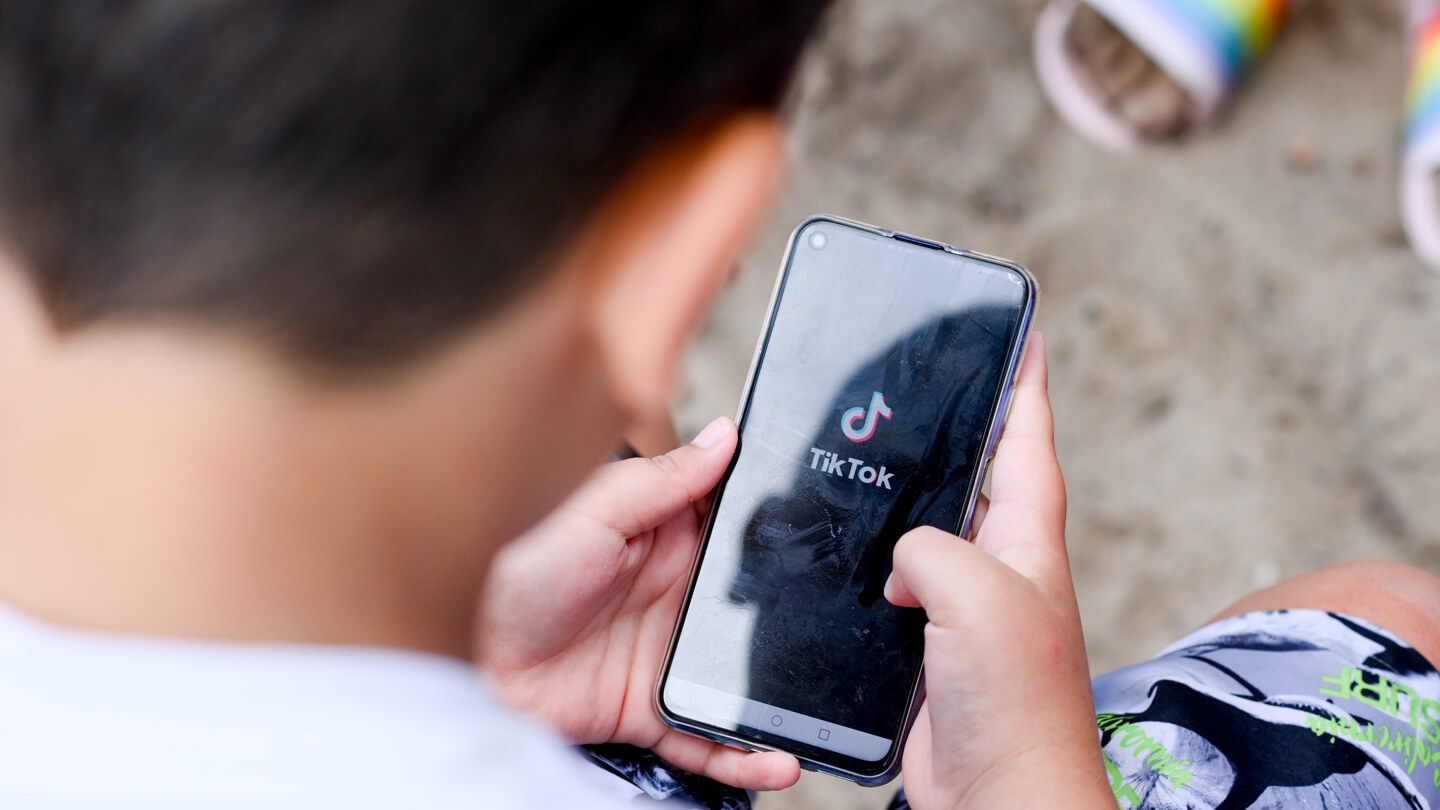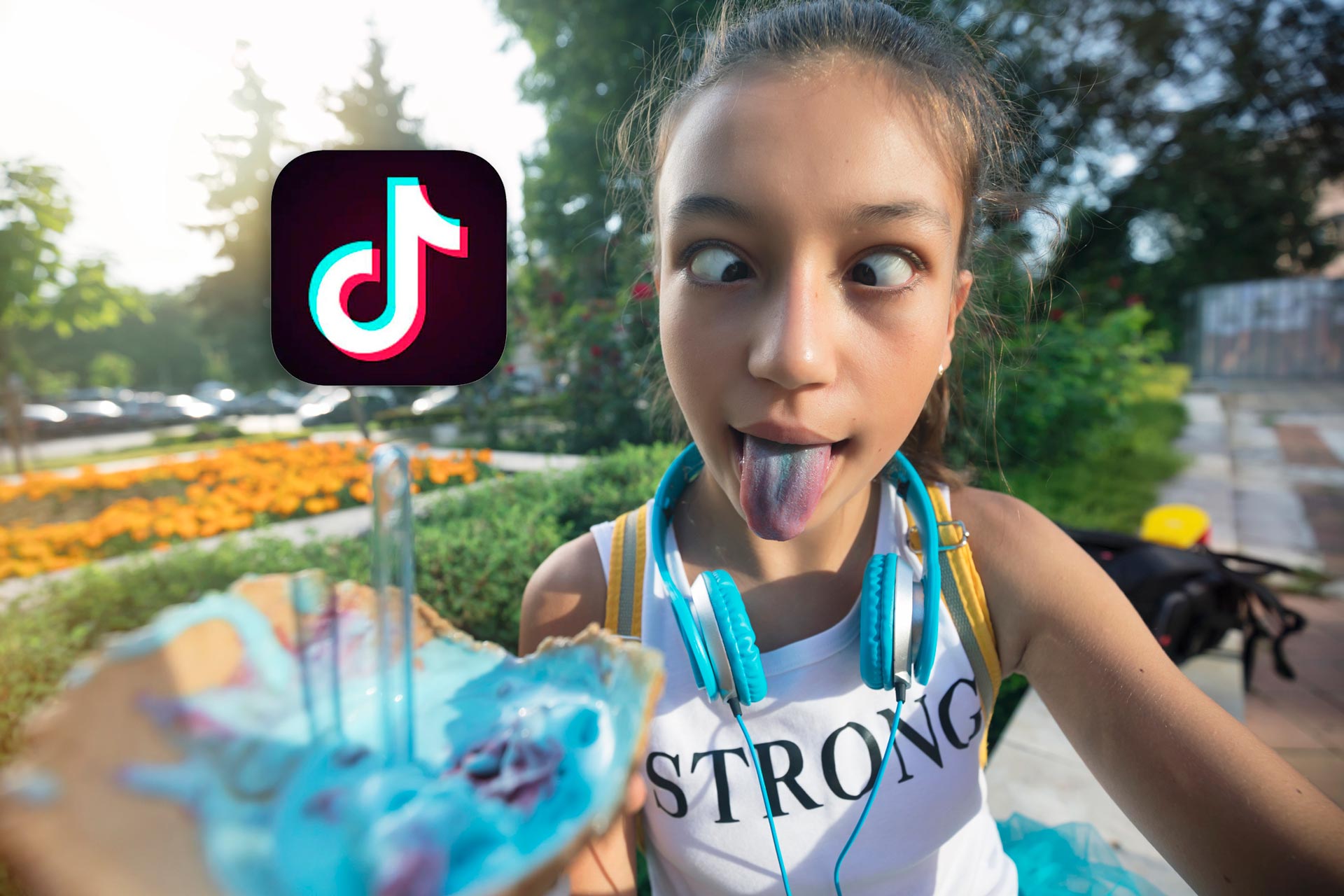What is TikTok and why is it so popular?
TikTok is a social media app that allows users to make and post short videos. Some of the most popular features include lip-sync and dance videos. Tik Tok (pronounced like "tock") has been downloaded over 500 million times worldwide. This Chinese app is often seen as the Asian version of Vine or Instagram, but it's actually unique in its own right.
It’s very popular with younger kids and teens for several reasons: It can be fun and creative, easy to use even for little fingers, quick and addictive — all things we know appeal to young people — and also because most parents haven't heard about it! Parents may use filters on YouTube to block inappropriate content, but Tik Tok doesn't have any age restrictions.
Benefits of this social media:
It is really easy to use and kids could make their own videos.
Negative effects of this social media:
The majority of the posts on Tik Tok are inappropriate, so it's very likely that you'll come across these types of videos: drinking, smoking weed, doing drugs, using vulgar language, or showing other rude behavior.
How does TikTok work?
This is an app that works on mobile devices. You can download it for free from the Apple Store or Google Play, then sign up using your email address, phone number, or Facebook account.
It’s important to know that TikTok is not meant for kids under 13, but young users often lie about their ages in order to get access to this social media platform.
So, after you or your child got an account, there are two main ways to watch videos on Tik Tok:
Search for hashtags (keywords that help connect users who are interested in similar subjects or have the same sense of humor): Trending hashtags are usually safe for kids, but you can check how many times a hashtag has been trending before allowing your child to search it.
The more popular it is, the less chance there is of inappropriate content is found. Search for specific video titles in which your kids would be interested, like "pranks", "dances", "funny fails", etc. This type of searching is trickier because not all videos with inappropriate keywords will be marked as such. So you might miss seeing something questionable when scrolling through the results if your kid isn't careful.

How old should you be to register on TikTok?
Since Tik Tok is made for users ages 13 and up, the minimum age requirement to sign up is 13. However, children younger than this can still use the app if their parent's consent, which means that even very young kids could be on it without you knowing.
What are the possible risks of TikTok?
There have been a few cases of cyberbullying and sexting with TikTok. The app allows users to post their videos anonymously, which many kids find appealing. It’s also popular because it's easy to use, quick and addictive — all things that appeal to young people! Parents should talk with their kids about being careful online, including what they share on social media and with who they share it.
Cases of "inappropriate content," such as a man who was arrested in Missouri for making pornographic videos featuring girls between 13 and 16 years old in sexual situations using the app.
Be aware that children might explore beyond the main page if they play around on Tik Tok, so make sure your child never reveals personal information on the app.
Is TikTok safe for little kids?
Tik Tok is an unsafe app for younger children because it doesn't hold content in moderation -- so even if you give your kid access and monitor closely, they may still see things that are disturbing or inappropriate. And because Tik Tok doesn't restrict teen users from making and sharing videos, cyberbullying and sexting are major concerns.
Does TikTok have any safety features?
Tik Tok does have some parental tools for keeping your child safe online. You can choose to turn off comments or disable video likes so your little one won't get overwhelmed by the feedback from anyone they don't know.
But with no age restrictions, there isn’t much else TikTok does to prevent inappropriate content from being viewed by kids who are too young to identify it as dangerous or inappropriate in nature. What about safety features for teens?
Teens should be warned about sexting, cyberbullying, and inappropriate content -- even though the app doesn't restrict teen users from making and sharing videos.
What safety measures should parents take?
Some good things to know: Kids can only access the app via mobile devices, not computers or game consoles, so you can control what apps they download on their individual mobile devices.
Tik Tok isn't available in the App Store for i-devices (Apple), but it is available for both android and i-devices in the Google Play Store -- this means that if your kid has an i-device, it's possible that they'll be able to get around restrictions you place by using someone else's Android phone or tablet. And even if your child uses an Android phone, there are ways to set up parental controls; YouTube also allows you to flag videos you don't like and make sure your kids can only see appropriate content.

Outside monitoring systems
Such programs as The CleanerNet, Internet Keep Safe Coalition, and The Children's Trust offer a free service that allows parents to see what sites their children have been visiting, as well as any dangerous or inappropriate content they may have accessed. This software works by restricting access to these sites and warning children against them.
Do I need a TikTok account to watch videos?
No, you do not need an account to watch some TikTok videos. However, if you want to follow some users or comment on a video, then yes -- you'll have to create an account using a phone number and email address. If your child is under 13, they won't be able to sign up for anything on social media without permission from their parents anyway!
If the user has set the privacy of their video so that it's viewable by everyone, anyone can add reactions e.g., hearts or flowers(?) Some do this because they wish to share their video with the entire community, others do this to get more numbers, which might result in receiving more likes or being able to see how many hearts or flowers they have collected.
It is also possible that some users are using it as a way of getting attention and encouraging interaction from other users by putting out videos that appear provocative or 'sexy' – if these types of videos receive lots of attention then they may post more like this. This can lead to children seeing inappropriate content and they could be upset by what they saw.
What should I do if my child has encountered inappropriate content?
Start by talking to them about what happened. Let them know that it's OK to be upset and that if they're concerned or feel unsafe they should speak to you right away. For more information on how to have this conversation, read our article on sex ed for the whole family.
If your child is under 18, there are certain kinds of things you can do if they've become involved in cyberbullying or sexting - but only with the digital consent of your kid, so check in first before taking action yourself. If there have been inappropriate images taken or shared without consent (i.e., revenge porn), then talk to a lawyer - every situation is different depending on age, state laws, and other factors.
Should you delete your child`s TikTok account?
Not necessarily. If you want to make sure your kids aren't going to come across any inappropriate content, then yes - also inspect others delete their TikTok account. Also keep in mind that if they're under 13 and have a TikTok account, it's against the company's policy anyway.
What to do if your child is obsessed with TikTok?
First, it's important to remember that being a user on social media is normal for a teenager. Social media sites offer a space where people can feel independent and develop their own opinions and identities - so there's nothing wrong with your child wanting to be on Tik Tok.
In some cases, using the app regularly may be an indicator of other more serious issues such as depression or anxiety, especially if they're spending several hours per day on the app.
In this case, it might be helpful to talk to a therapist about what you've noticed – ask them about how much time is normal for teens of this age to spend online and whether they agree with you seeing any concerning patterns in your child's behavior. If it turns out that your child's TikTok usage is a red flag, they might recommend that you monitor your child's activity or even block access to the app.
What can I do if my child is being cyberbullied on TikTok?
If someone has been bullying them on the app itself, there are two steps you should take:
- You should block the person in question from contacting your kid by going into their profile and tapping "…". This will prompt a menu of options - select "Block" and then confirm. This means they cannot send messages about comments etc., but it also means that any content they've already posted will remain public.
- You need to make sure all footage or text of this person won't show up in your child's profile or feed by blocking them on the app. You can do this by going into your child's profile and scrolling down to "Settings". Then choose "Blocked users" and tap "+ Add User". Type in their username (if you don't know it, ask them) and select the option to block their account. This means that they'll be unable to find your child or create a new account, but it also means that any content they'd already posted will no longer show up for other people either.
However, if other kids are insulting your child without talking about them directly, then the best thing is not to engage with these comments at all - deleting comments that are directed towards other people helps remove the visibility of these posts without creating a "wall of shame".

What can I do if my daughter is being groomed by scammers on TikTok?
Unfortunately, this sadly does happen - and it's important that you talk to your child about how these accounts get their information. They might search for kids in their age group and send them messages like "Hey - comment 'You look cute' so I can see who reads my comments" or share links to fake giveaways. If you know the person messaging them is actually an adult (i.e., they're making references to sex), then intervene immediately!
Tell your kid that what they're doing isn't safe and should not be repeated, but also explain why this sort of thing occurs over time so they understand why it doesn't need to be discussed.
If it's just someone who has befriended them and is likely to ask for personal information that could put their accounts at risk, then your first step should be to block them so they can't communicate - or if you know the person well enough, talk about how this sort of behavior isn't acceptable and see if they'll agree to take an extended break from Tik Tok.
What if your teen posts and looks through inappropriate content?
This might seem like a tricky situation, but one of the most important things you can do is stay calm and try not to overreact - it can make them feel like they've done something wrong when this isn't necessarily true. If their behavior seems out of character for them (for example, if they usually take care of what they share), then it's likely that this content was shared without their knowledge.
At the same time, digital literacy skills are incredibly important for kids growing up in today's world, which means that there might be other reasons for this change in behavior (e.g., they're struggling with other stressors that may also be affecting how much time they spend online) or trying to fit into a specific social group. If this is the case, then it's important to find out what's going on and see how you can support them.
However, if your child has been deliberately searching for inappropriate content or recently created a new account, then it's likely that they don't understand the implications of the content they've been posting (for example, an innocent-looking photo may come across as explicitly sexual when paired with certain hashtags).
Schedule some time to talk about ways to stay safe while using these apps and explain why each action could potentially lead to exposure for your child - without making them feel like they did anything wrong!
Final words
As with all social media, you should introduce your child to the platform as early as possible and understand that they may experience some of its downsides too. A lot of teens find Tik Tok a positive space where they can be themselves and engage in fun conversations. Ensuring that young people know how to assess these risks is an important step towards helping them learn to use technology responsibly and enjoy it at the same time.